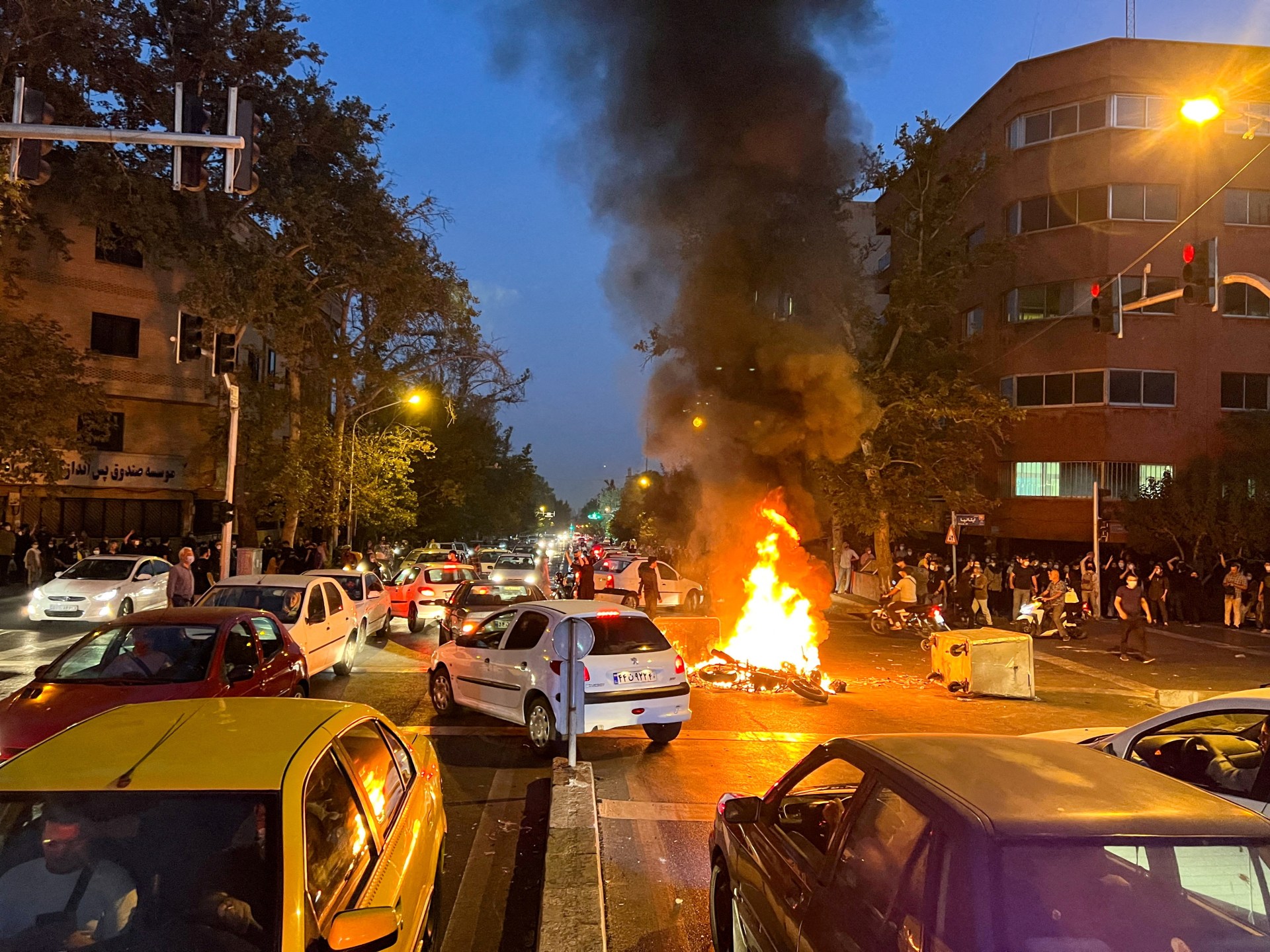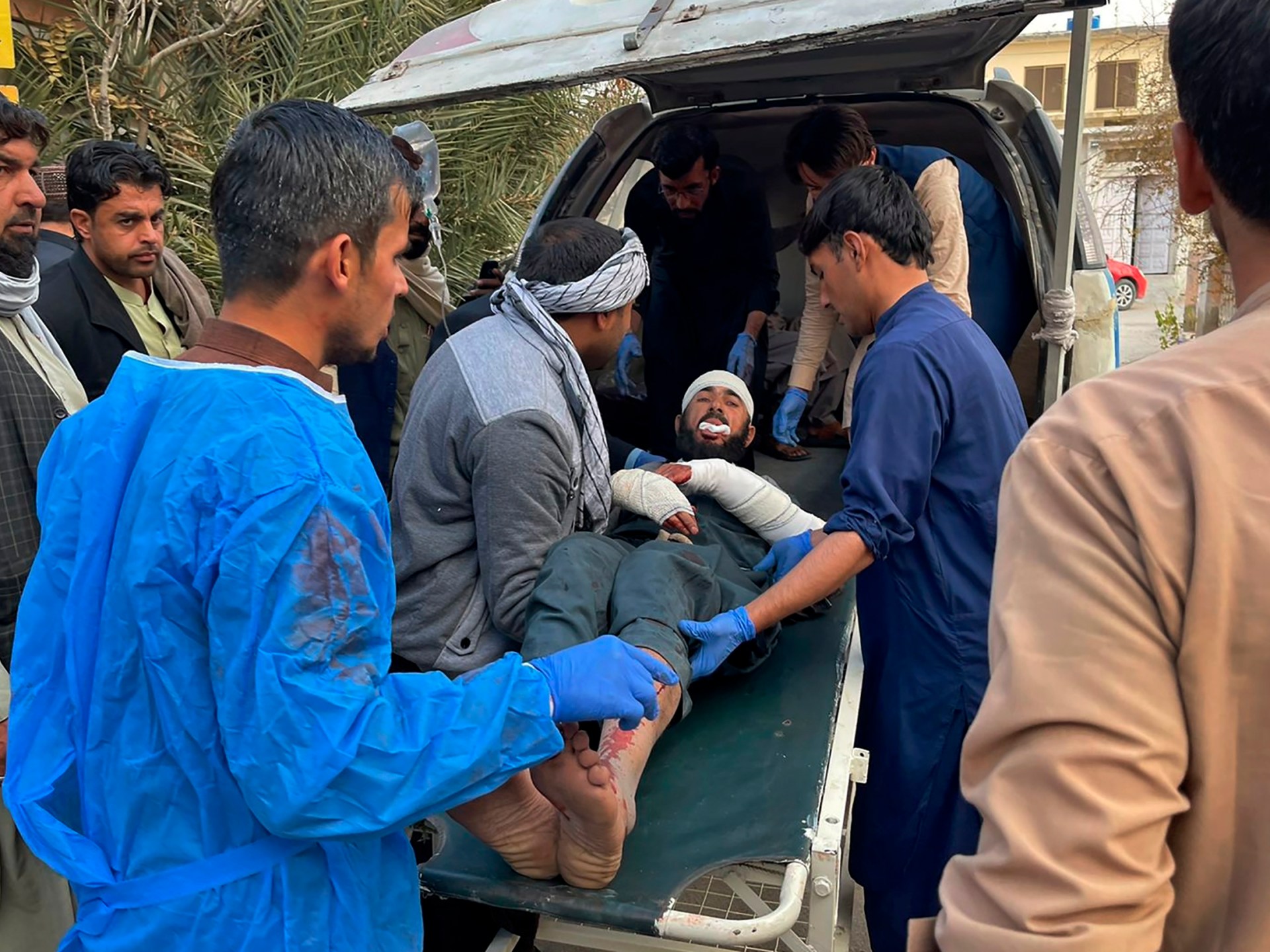Brazil’s Supreme Court orders removal of pro-Bolsonaro roadblocks
Far-right president still has not commented on his election defeat as truckers erect protest blockades for a second day.
Brazil’s Supreme Court has ordered police to remove roadblocks erected by supporters of far-right President Jair Bolsonaro, who still has not publicly acknowledged his election defeat to left-wing rival Luiz Inacio Lula da Silva.
Justice Alexandre de Moraes on Tuesday called on the Federal Highway Police to disperse the blockades, which were organised primarily by truckers, a key Bolsonaro constituency.
The highway police said truckers had blocked highways at 271 points, partially or fully, as part of protests that have spread to 23 of Brazil’s 26 states in the wake of Bolsonaro’s loss to Lula in Sunday’s election.
The police force said another 192 roadblocks had been cleared.
Bolsonaro has remained silent for more than 36 hours after narrowly losing the run-off with 49.1 percent of the vote compared with Lula’s 50.9 percent.
His silence – both in public and on social media – and his refusal to immediately concede defeat have spurred concerns that Bolsonaro could be seeking ways to contest the results.
For months, the former army captain has falsely claimed that Brazil’s electronic voting system is vulnerable to fraud. Critics said the allegation was part of a plan to contest his likely defeat and similar to tactics used by former US President Donald Trump, whom Bolsonaro has emulated.
Al Jazeera’s Monica Yanakiew, reporting from Rio de Janeiro on Tuesday, said many of the far-right leader’s allies have acknowledged Lula’s victory. “I doubt that he will say he doesn’t accept the results because there’s nobody to back him up on that,” Yanakiew said.
She, nevertheless, described Bolsonaro’s silence as a “very loud” one that is complicating what should be a smooth transition. “The fact that President Jair Bolsonaro hasn’t opened his mouth since the election results were broadcast, that doesn’t help at all.”
It was not immediately clear when Bolsonaro would address the election outcome.
Since Monday, protesters have blocked roads in major cities, including outside Sao Paulo’s Guarulhos Airport, the country’s main international air hub, as well as in Rio de Janeiro. A banner reading “Lula No!” hung off a bridge in Sao Paulo.
But the state with the most roadblocks was Santa Catarina in the south, where almost 70 percent of voters backed Bolsonaro.

“I hope that I can go back home,” real estate agent Rosangela Senna, 62, told the AFP news agency at a bus station in Sao Paulo, where she was unable to take her bus back to Rio.
“I could afford to pay for a day to sleep in a hotel here, but many people had to wait right here at the bus station,” she said.
Tuesday’s Supreme Court decision, which was backed by a majority on the 11-member court, ordered police to take “all measures” needed to free the roads.
The ruling also set fines on highway police Director General Silvinei Vasques if he fails to clear the roadblocks. Vasques had come under fire for posting an Instagram story on Election Day urging Brazilians to vote for Bolsonaro.
The far-right leader, whose mantra was “God, family, country”, had campaigned on his conservative values, including his opposition to legalised abortion and drugs while falsely warning that Lula’s return would lead to the persecution of churches.
Lula, who served as president from 2003 to 2010, had pledged to support working-class Brazilians and reinstate environmental protections, especially in the Amazon, after a surge of deforestation during Bolsonaro’s administration.
Numerous international leaders have congratulated Lula on his victory, including US President Joe Biden, who in a call to the president-elect on Monday also “commended the strength of Brazilian democratic institutions following free, fair and credible elections”.



